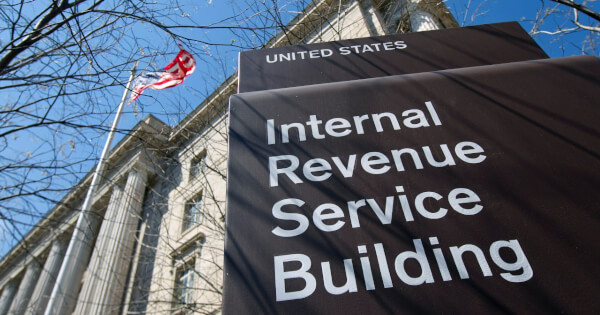The Internal Revenue Service (IRS) recently announced significant changes regarding the reporting of cryptocurrency transactions by U.S. companies. Initially, as part of the Infrastructure Investment and Jobs Act passed in November 2021, businesses were required to report cryptocurrency transactions over $10,000 to the IRS just like cash transactions. However, this requirement has been temporarily put on hold until a comprehensive regulatory framework is established.
This development, announced on January 16, 2024, indicates that the IRS has taken a step back in enforcing the new rules that took effect on January 1, 2024. This decision was influenced by changes to the Infrastructure Investment and Jobs Act. U.S. Treasury and IRS. Current law requires businesses to report receipt of more than $10,000 in cash or digital assets within 15 days of the transaction. However, the IRS has made it clear that digital assets do not need to be included in this requirement at this time.
The initial rules received significant criticism from the cryptocurrency community. Many users and stakeholders in the cryptocurrency industry have found it difficult to comply with the rules, especially due to the lack of clear guidance from the IRS. Coin Center, a cryptocurrency advocacy group, previously filed a lawsuit against the Treasury Department challenging the constitutionality of the law. The legal process is still ongoing, but the law is still enforceable.
The IRS and Treasury Department are expected to release proposed regulations regarding digital asset reporting. This will also include a public comment period where stakeholders can voice their opinions and concerns. Digital asset advocates such as the Blockchain Association welcomed the decision, seeing it as a positive step forward given the complexities involved in reporting cryptocurrency transactions.
Despite the temporary relief, the requirement to report large cryptocurrency transactions remains a legal obligation. The IRS has not provided specific guidance on certain practical aspects, such as how to report transactions. Decentralized Exchange or blocks compensation exceeding $10,000. The law’s criteria for evaluating the $10,000 threshold in terms of cryptocurrency value is also unclear. The IRS’s decision to stop enforcing this requirement provides an opportunity for the cryptocurrency community and regulators to work on more practical and clear guidance.
This situation highlights the ongoing challenges of regulating the rapidly evolving cryptocurrency market. Governments and regulators face the complex task of balancing regulatory requirements with the unique characteristics of cryptocurrencies as they attempt to integrate digital assets into existing financial and legal frameworks. This delay by the IRS can be seen as an acknowledgment of these challenges and a willingness to work with the cryptocurrency community to develop more effective regulations.
Image source: Shutterstock

